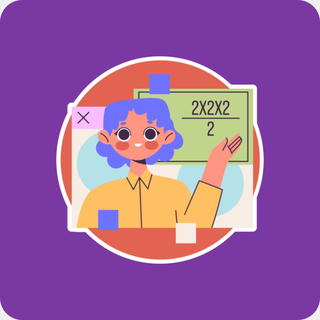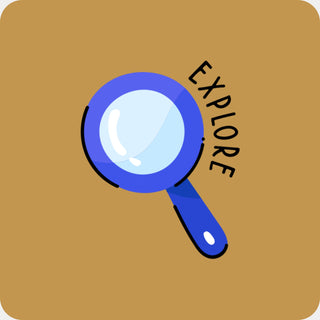Introduction
In the world of career counseling, the quest to assist individuals in making informed and meaningful career choices is an ongoing endeavor. One of the powerful tools in a career counselor's toolkit is the psychometric assessment—a structured method of gauging an individual's cognitive abilities, personality traits, interests, and values. However, while psychometric tests provide valuable insights, they are most effective when combined with the human touch of interviews. In this article, we explore the synergy of psychometric tests and interviews, offering career counselors a comprehensive approach to career assessment that can yield richer and more personalized results.
The Role of Psychometric Tests in Career Assessment
Psychometric tests, including aptitude assessments, personality inventories, interest inventories, and values assessments, serve as objective measures of an individual's attributes related to career choices. These tests offer several advantages:
-
Objectivity: Psychometric tests provide objective data, free from personal biases or opinions, offering a standardized basis for assessment.
-
Efficiency: They efficiently measure various aspects of an individual's profile, making them valuable tools in time-sensitive counseling settings.
-
In-Depth Insights: These assessments delve into cognitive abilities, personality traits, interests, and values, revealing nuances that might not surface through interviews alone.
-
Career Fit: Psychometric tests help identify career options that align with an individual's unique attributes, increasing the likelihood of job satisfaction and success.
-
Self-Awareness: They promote self-awareness by offering clients a structured view of their abilities and traits, boosting confidence in career choices.
The Limitations of Psychometric Tests
While psychometric tests are powerful, they are not without limitations:
-
Contextual Understanding: Tests may lack the contextual understanding that interviews provide, missing the nuances of a client's specific situation.
-
Cultural and Language Bias: Some tests may exhibit cultural or language biases, potentially affecting the validity of results for diverse populations.
-
Lack of Personal History: Tests do not account for an individual's personal history, experiences, or aspirations, which can greatly influence career choices.
The Role of Interviews in Career Assessment
Interviews, whether structured or semi-structured, add a human dimension to career assessment. They provide the opportunity for counselors to delve into a client's personal experiences, aspirations, and values. Here's why interviews are indispensable:
-
Contextual Insights: Interviews allow counselors to understand the client's background, experiences, and personal context, providing a richer understanding of their career goals.
-
Nuanced Exploration: They enable in-depth exploration of a client's aspirations, passions, and challenges, shedding light on unique factors influencing career choices.
-
Cultural Sensitivity: Interviews can uncover cultural nuances and sensitivities that tests may miss, ensuring culturally competent counseling.
-
Clarification and Feedback: Clients can seek clarification on test results, express concerns, and offer feedback, fostering a collaborative counseling process.
A Comprehensive Approach: Combining Psychometric Tests and Interviews
The synergy of psychometric tests and interviews forms a comprehensive approach to career assessment that leverages the strengths of each method. Here's how to implement it effectively:
1. Define the Assessment Goals
Start by defining the specific goals of the career assessment. Consider what aspects of the client's profile you aim to assess, such as cognitive abilities, personality traits, interests, values, or personal experiences.
2. Administer Psychometric Tests
Administer the relevant psychometric tests based on the assessment goals. Ensure that the tests are reliable, valid, and culturally sensitive, and that they are administered in a standardized manner.
3. Review Test Results
Analyze the test results to identify patterns, strengths, and areas for development. Note any discrepancies or insights that warrant further exploration during the interview.
4. Conduct Structured Interviews
Schedule structured interviews with the client to explore the findings of the psychometric tests. Use open-ended questions to delve into their personal experiences, aspirations, values, and any concerns they may have regarding the test results.
5. Explore Personal Context
During the interviews, focus on understanding the client's personal context, including their educational background, work history, family influences, and cultural factors. This information provides crucial context for career guidance.
6. Address Discrepancies and Clarify Insights
If there are discrepancies between the test results and the client's self-perception or aspirations, address them collaboratively. Seek to clarify insights and offer context for understanding.
7. Collaborative Goal Setting
Work with the client to set clear, achievable career goals based on the combined insights from psychometric tests and interviews. Ensure that these goals align with the client's strengths, interests, values, and personal context.
8. Provide Feedback and Guidance
Offer feedback and guidance that integrates the findings from both assessments. Explain how the client's unique attributes and experiences relate to their career choices.
9. Supportive Environment
Create a supportive and non-judgmental environment during the interviews to encourage open and honest communication. Ensure that the client feels heard and understood.
10. Ongoing Assessment
Remember that career assessment is an ongoing process. Periodically review and reassess the client's goals and progress to ensure that their career path remains aligned with their evolving needs and aspirations.
Conclusion
Combining psychometric tests with interviews creates a comprehensive approach to career assessment that harnesses the strengths of both methods. While psychometric tests provide valuable objective data, interviews offer the depth and contextual understanding needed to make the career counseling process truly personalized and effective. Career counselors who master this synergy are better equipped to guide their clients toward fulfilling and meaningful career choices.






























































